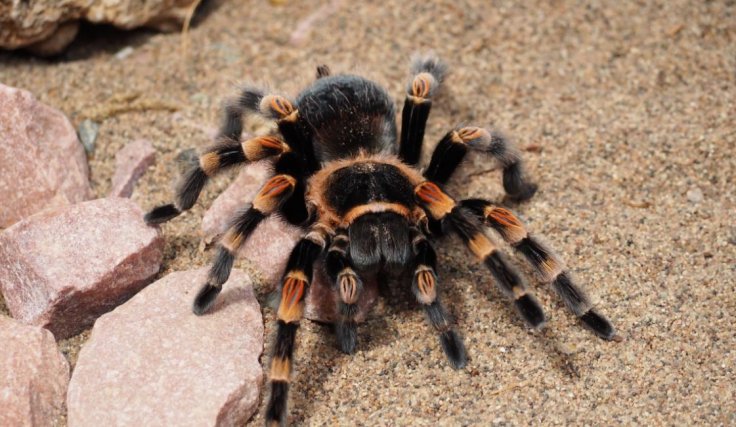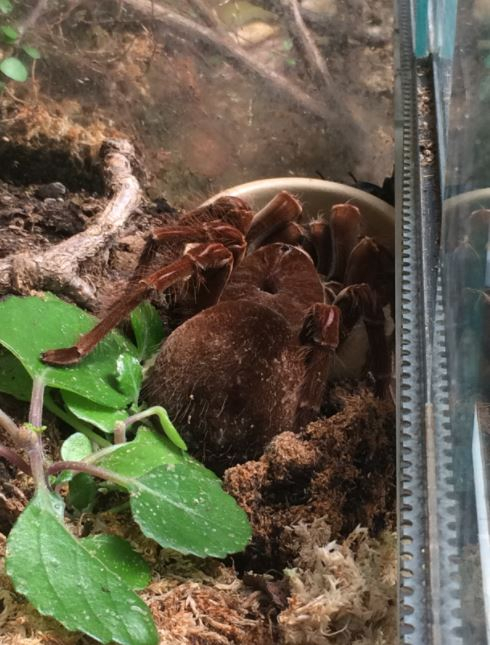The sight of a large tarantula is enough to trigger a serious bout of arachnophobia in anyone. However, for those suffering from painful cases of irritable bowel syndrome (IBS), that one of the largest species of the hairy arachnid may serve as a life-saver, as a new study has found that its venom could help ease IBS-caused pain.
In a study led by researchers from the University of Queensland that screened nearly 30 spiders, it was found that the venom of the Venezuelan Pinkfoot Goliath tarantula—one of the largest tarantulas in the world with a leg-span of nearly 30 centimeters—may help produce tailored pain blockers to alleviate pain in people struggling with IBS.
Shortcomings of Existing Drugs

IBS is characterized by severe abdominal pain and significant changes in the pattern of bowel movement; with any signs of causative damage to the large intestine. Some of the other symptoms of the disorder include gas, bloating, cramping, and constipation or diarrhea (or both). Chronic abdominal pain or discomfort is one of the more common yet adverse symptoms, and its management presents various challenges.
Explaining the challenges of pain management, Richard Lewis, leader of the study, said in a statement, "Current drugs are failing to produce effective pain relief in many patients before side effects limit the dose that can be administered." He added that nearly 20 percent of the world's population struggles with gut pain.
Chronic Pain In Internal Organs
Stuart Brierley, co-author of the study, described that IBS and other bladder and gastrointestinal disorders lead to chronic visceral pain—pain that affects other internal organs. "Internal organs have a complex network of sensory nerves that have a wide array of voltage-gated ion channels and receptors to detect stimuli," said Brierley.

Voltage-gated ion channels are proteins that open and close according to the changes across the cell membrane. Their impaired functioning causes chronic visceral pain. "The hypersensitivity of these nerves in disease often contributes to the development of pain, " he added.
Turning to Spiders for a Solution
For the study, the scientists evaluated 28 species of spiders and their venom. Spider venom contains hundreds of peptides—small chains of amino acids—that can inhibit the opening of voltage-gated ion channels. However, these peptides are not entirely selective of pain targets. "Our goal was to find more specialized pain blockers that are potent and target pain sodium channels for chronic visceral pain, but not those that are active in the heart and other channels," said Lewis.

Through their analysis, the researchers isolated two peptides venom from the venom of Venezuelan Pinkfoot Goliath tarantula (Theraphosa apophysis). These were found to inhibit the vital ion channels associated with pain. One of these was discovered to be specifically potent in decreasing the sensory nerves of the colon and bladder, almost eliminating chronic visceral pain in an IBS model.
"We now have a really strong understanding of the structure and function of these spider venom peptides. The highly selective ones have potential as treatments for pain, while others are useful as new research tools to allow us to understand the underlying drivers of pain in different diseases," concluded Lewis.








